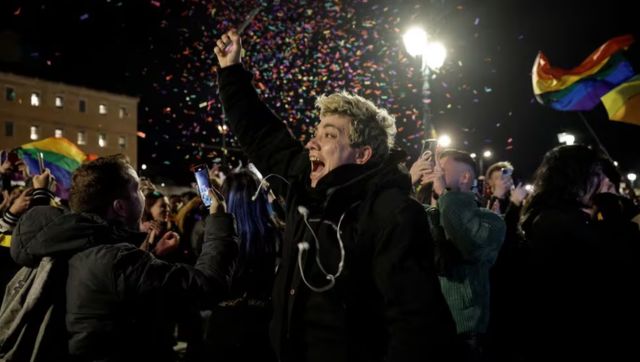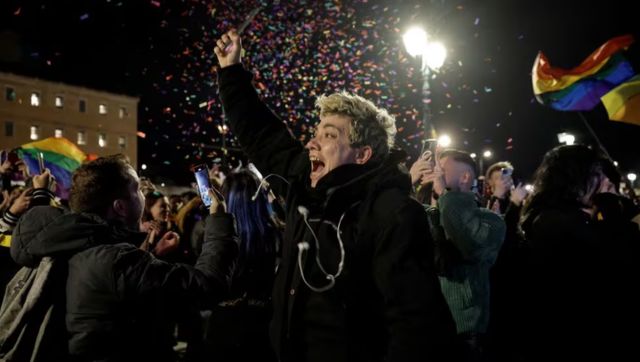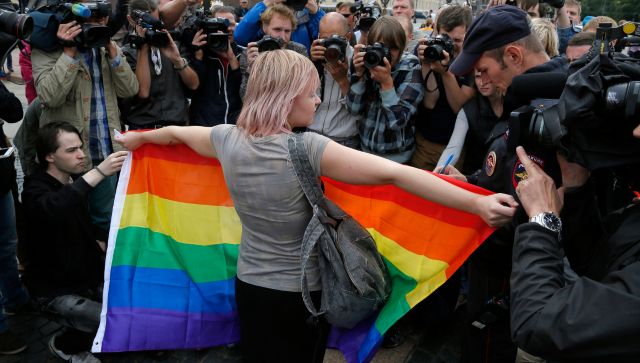The Queer Take is a fortnightly column by poet-writer Joshua Muyiwa. Read more from the series here .
***
All over the world, comic book fans always want the origin stories of these superbeings. We’re keenly interested in the circumstances that brought out the “natural” abilities of this being. The fandom around these comic books is convinced that the power always lay inside this “gifted” person; it just needed something to coax it out. The catalyst isn’t always a pleasant memory for the person with the powers though.
It is no wonder that those of us who don’t find representation anywhere else find ourselves in the pages of comics. It is no wonder that these worlds have been allegories for people on the margins of society. It is no wonder that they’re completely convinced that the stories being told through this medium are their stories too. But these origin stories are engineered, made up to create narrative consonance, to act as a step to the next rung in the series. They are constructed, contrived and concocted.
You know what kinds of stories bear a similar style? Coming out stories from the LGBTQ+ community.
Everybody you meet — from people on the road to the ones in your room — they ask: When did you know you were…? (Insert the appropriate letter from the alphabet soup of sexual identity to complete the question.) Over the past three decades, I’ve come up with many versions of my story — and now, I’ve come to see that none of those tales had anything to do with me. I was making them up to convince the other person that there was a time before I knew I was absolutely amazing. (Fine, I’ll say, just me.)
The question I’m convinced people should ask is: When did people like me make you feel bad for being who you always knew you were? In forcing us to trace our origins in this framework set up by you — the shamers — you escape implicating yourself in the story of my becoming, of our becoming. That seems quite convenient right? It is. You slip out of the responsibility each of you had on playgrounds, classrooms, offices and streets for making us feel like we shouldn’t be this thing.
Yes, ‘thing’ — the word you throw at me, at us. I’ve always wanted to be this, I never had any doubt – the day I was made to climb over your hurdles, dodge your barbs and navigate the obstacles was the day I had doubt. When you ask the question “When did you know you were….?” you actually want to know the day I listened to you, and your words hurt me. I think I’ve been going about it all wrong. We all have been going about it wrong. Giving you the wrong answer this whole time. We’ve been playing to the cheap seats.
If I look at my own life, I find a striking parallel in RuPaul ’s story about his own beginnings. (Or maybe I just want to. That’s okay, give it a rest.) While growing up, no one in his family or surroundings made him feel odd; rather they chose to see him as special, unique and one-of-a-kind. His eccentricities were embraced and never caused any embarrassment. In fact, his family fiercely protected him against the bricks of the world, convincing him that he could make his own way through it. They told him, they — people who he would anoint as family — would be his force-field against the naysayers, protecting him the whole time. (This is a delusion I can get behind.)
I’m not completely convinced our childhoods crisscrossed but I’ve got a story that really convinced me that I wasn’t wrong at a very young age. My Nepali grandmother and I would go shopping at the Sunday Market on a weekly basis. On one such occasion, one of the vendors asked her: Is that a boy or a girl? My little Nepali grandmother basically spent the next 30 minutes tearing that man a new one and then bringing the market down when a crowd had gathered. On our bus-ride home, she told me people should learn to mind their own business. She didn’t breathe a word about the confusion in me that might have prompted that question, she dismissed him. It told me, you can dismiss these doubts too. You know that’s enough. We never went back to that vendor; we went to the market, walked past him, glared at him, and moved on to another vendor. It became an additional ritual to these weekly shopping jaunts.
Nowadays, I’ve started telling people this story whenever I am asked this question. I think it just fits better. It doesn’t subscribe to the seamy sexual underpinnings of our identities that everyone actually wants to hear. It doesn’t put it all on one person; the person itself or a lover. Everyone from the larger society is represented in this story, everyone has a stake in my becoming. In framing the question in this manner, you seem to want to convince us that we didn’t know. In answering your question like this, I hope to tell you, you knew before me and tried to change me. I didn’t change, I didn’t think it is wrong — also thanks to someone like you. We are all the sum of all of these many moving parts, you see.
Joshua Muyiwa is a Bengaluru-based poet and writer


)




)
)
)
)
)
)
)
)